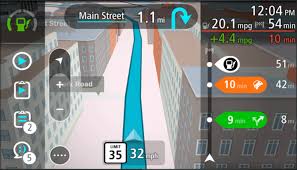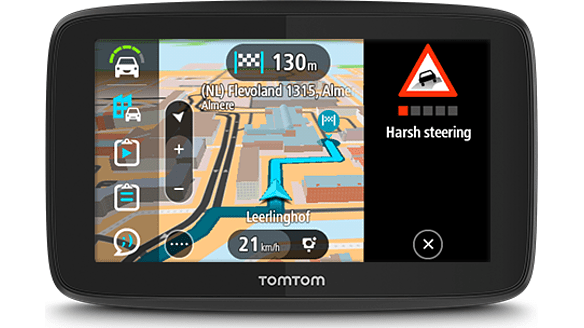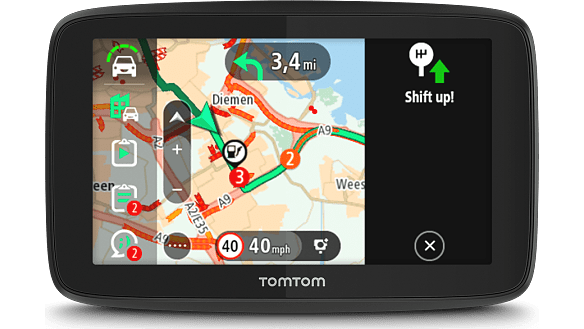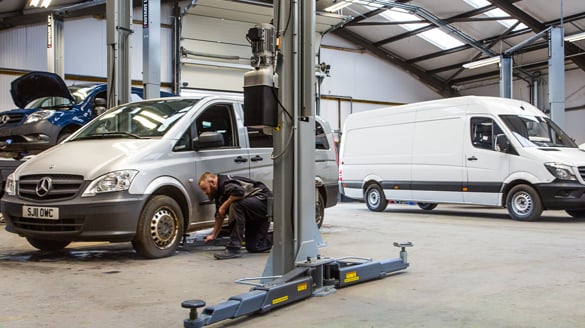6 Key benefits of a driver behaviour improvement programme.

One of the concerns we hear as we travel the country, both virtually and in person, is that insurance costs are rising due to a poor claims history. In this blog we look at the six key benefits that you can experience with a comprehensive driver behaviour programme. Technology can now help you with more data available than ever before.
The six key benefits to this approach are:
1. SPEEDING
Various research has been carried out over the years showing that speeding is significantly more likely to happen in a company vehicle than one the driver owns personally. There appears to be less care taken when the driver doesn’t own the vehicle.

Navigation units can play a part in resolving this issue because navigation maps contain the speed limits for all road types. With this information, each driver can then follow the guidance from the navigation device and eradicate unnecessary and often dangerous speeding.

2. Driving Events
Driving events like harsh braking and harsh steering are often a direct consequence of speeding. If speeding can be controlled, the likelihood of driving events is significantly reduced.
Drivers no longer slam on the brakes or take drastic evasive action by changing lane in a hurry. With speeding under control this means they can slow down gradually or move slowly from lane to lane to avoid collisions.

3. Fuel Consumption
One of the positive consequences of improved driver behaviour is the effect it has on fuel consumption. We have worked with a company who made it policy that speeding was no longer allowed.
In their fleet, they run over 100 vans. They managed to reduce speeding to less than 1% of driving time which was quite impressive from a start point of over 50% of driving time. Their fuel consumption benefit was a 15% saving on fuel. We also have an HGV client who has saved 10% by reducing speeding.

4. Maintenance
Another positive consequence of improved driver behaviour is reduced maintenance costs. The average maintenance costs of vehicle types is:
- LCV £4,000 per vehicle per annum (including tyres).
- HGV £7,000 per vehicle per annum (including tyres).
According to industry experts Fleetcheck, you should expect a 5% saving of maintenance costs if these costs are monitored correctly. Your saving would be £200 per annum for each LCV and/or £350 per annum for an HGV.

5. Insurance Premiums
A regular discussion we have with clients is that fleet insurance costs are rising. In some cases organisations are being told they cannot be insured unless the driver behaviour improves significantly.
One of the reasons for these rising insurance costs is that they are not using telematics to its full potential. Telematics provides the potential to save money and manage risk but only if used correctly. Telematics systems will highlight “at risk” drivers who regularly speed and have high numbers of driving events. Used properly this can be your early warning alert to manage “at risk” drivers and provide evidence to your insurance provider that a driver behaviour programme is in place.

6. Uninsured Loses
A major insurer presented a study into uninsured losses for a well-known food and beverage company. This company completed a study into their uninsured losses. These are the losses that can be incurred which are not covered by typical fleet policies. These uninsured losses included:
- Loss of product being transported in the vehicle.
- Loss of associated profit.
- Vehicle off road/replacement vehicle.
- Labour cost of possible replacement driver.
- Reputational damage of a vehicle, with company livery, at the side of the road.
The annual uninsured losses were calculated to be the equivalent of 235 million biscuits (the four fingered variety!). Quite a substantial yet invisible cost to the business.

If you would like some help in establishing a driver behaviour programme or how telematics can help then please click below to book a meeting to discuss further.


